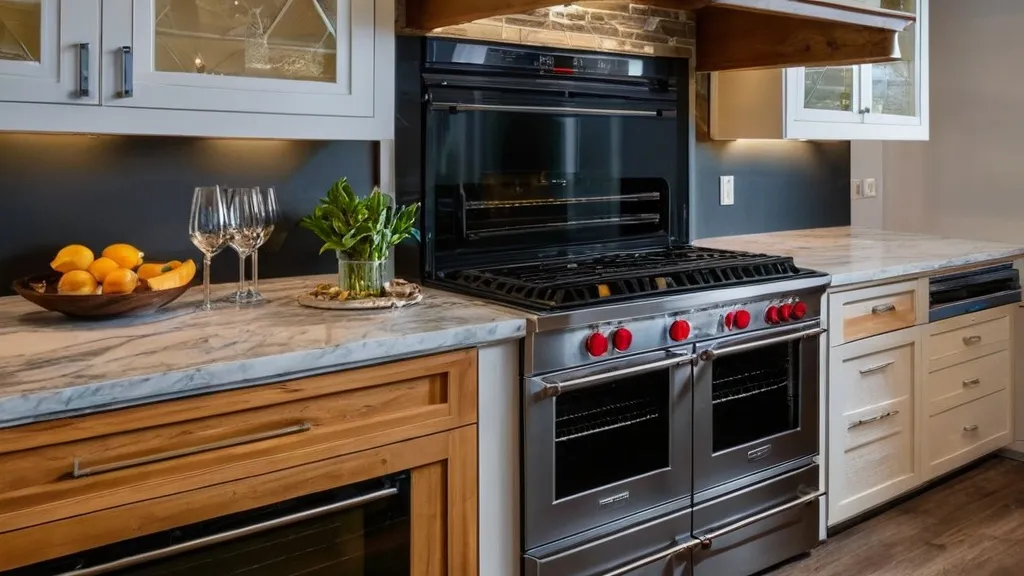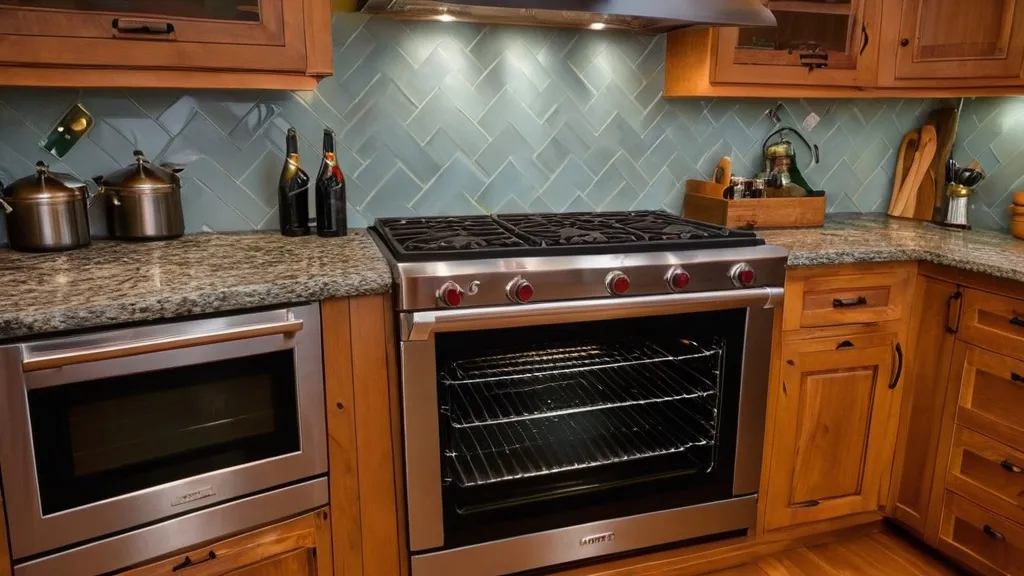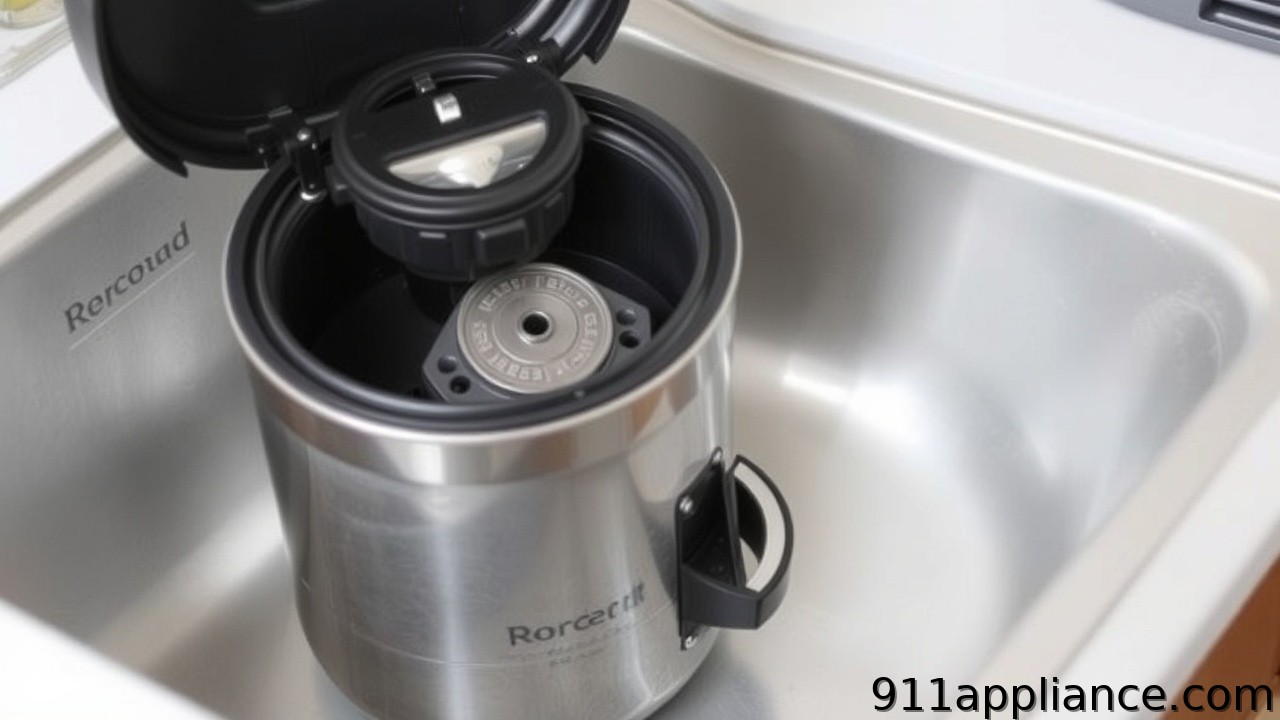Replace your appliances when they are over ten years old or if they frequently break down. Regular maintenance can extend their lifespan.
Table of Contents
- Recognizing The Signs Of Wear
- Unusual Noises Or Performance Issues
- Physical Damage And Cosmetic Concerns
- Appliance Lifespan Expectations
- Average Lifetimes Of Major Appliances
- Extending Lifespan With Proper Maintenance
- Cost-benefit Analysis Of Repairs Vs. Replacement
- When Repairs Are More Costly In The Long Run
- Calculating The Break-even Point
- Energy Efficiency Considerations
- Reducing Utility Bills With New Models
- Environmental Impact Of Older Appliances
- The Role Of Technological Advancements
- Smart Features And Connectivity
- Upgrading For Modern Home Integration
- Market Timing For Appliance Purchases
- Seasonal Sales And Discounts
- New Model Releases And Their Impact On Prices
- Installation And Compatibility Factors
- Space Requirements And Kitchen Modifications
- Matching Sets: Aesthetic And Functional Aspects
- Recycling And Disposal Of Old Appliances
- Eco-friendly Disposal Options
- Donation And Recycling Resources
- Frequently Asked Questions
- When Should Kitchen Appliances Be Replaced?
- Should I Replace 20 Year Old Appliances?
- How Long Should You Keep Appliances?
- What Is The Average Lifespan Of Appliances?
- Conclusion
Knowing when to replace your appliances helps maintain efficiency and safety in your home. Older appliances often consume more energy, leading to higher utility bills. Frequent repairs can also become costly and inconvenient. By replacing outdated or faulty appliances, you can enjoy enhanced performance, energy savings, and modern features.
Assessing factors such as age, repair frequency, and energy efficiency will guide your decision. Opting for newer models can provide better functionality and reliability, ensuring your household runs smoothly. Prioritize timely replacements to prevent unexpected breakdowns and maintain a comfortable living environment.
Recognizing The Signs Of Wear
Knowing when to replace your appliances can save you money and stress. Appliances show signs of wear that signal it’s time for a replacement. Recognizing these signs early can prevent unexpected breakdowns and costly repairs. Here’s what to watch for:
Unusual Noises Or Performance Issues
One of the most telling signs of wear is unusual noises. If your appliance starts making strange sounds, it’s time to take notice. Loud banging, rattling, or grinding noises indicate internal problems. These issues often worsen over time.
Performance issues are another red flag. Appliances should work efficiently. If your refrigerator struggles to keep food cold or your dishwasher leaves dishes dirty, these are signs of wear. Inefficient performance means the appliance is working harder, leading to higher energy bills.
Physical Damage And Cosmetic Concerns
Physical damage is a clear sign your appliance may need replacing. Rust, cracks, and dents not only affect the look but also the functionality. Rust can spread and cause internal parts to fail.
Cosmetic concerns are also important. While they might not affect performance immediately, they often indicate deeper issues. For example, a cracked oven door might lead to heat loss, making cooking less efficient.
| Sign | Potential Issue |
|---|---|
| Unusual Noises | Internal problems worsening over time |
| Performance Issues | Inefficiency, higher energy bills |
| Physical Damage | Functionality affected, potential for internal failure |
| Cosmetic Concerns | Indication of deeper issues |
Recognizing these signs early can help you decide when to replace your appliances. This proactive approach can save you from unexpected breakdowns and costly repairs.
Appliance Lifespan Expectations
Understanding the lifespan of your household appliances helps you plan for replacements. Appliances don’t last forever. Regular use and wear and tear will eventually take their toll. Knowing when to replace them can save money and prevent inconvenience.
Average Lifetimes Of Major Appliances
Here is a table that shows the average lifespan of major household appliances:
| Appliance | Average Lifespan (years) |
|---|---|
| Refrigerator | 10-15 |
| Dishwasher | 7-10 |
| Washing Machine | 8-12 |
| Dryer | 10-13 |
| Oven/Range | 13-15 |
| Microwave | 7-10 |
Extending Lifespan With Proper Maintenance
Proper maintenance can significantly extend the lifespan of your appliances. Here are some tips to help you:
- Refrigerator: Clean the coils regularly to improve efficiency.
- Dishwasher: Run a cleaning cycle with vinegar to remove buildup.
- Washing Machine: Avoid overloading and use the right detergent.
- Dryer: Clean the lint filter after every load.
- Oven/Range: Clean spills immediately to prevent damage.
- Microwave: Avoid slamming the door and clean the interior.
Cost-benefit Analysis Of Repairs Vs. Replacement
Making the decision to repair or replace an appliance can be tricky. A cost-benefit analysis helps in making an informed choice. This ensures you save both time and money. Let’s break down the key considerations.
When Repairs Are More Costly In The Long Run
Repair costs can add up over time. Frequent repairs drain your wallet. Here are some signs it’s time to replace:
- Repeated breakdowns
- High repair costs
- Energy inefficiency
If an appliance fails often, replacement might be cheaper. Newer models are more energy-efficient and reliable.
Calculating The Break-even Point
To decide between repair and replacement, calculate the break-even point. This is when the cost of repairs matches the cost of a new appliance. Follow these steps:
- Determine the initial repair cost.
- Estimate future repair costs.
- Compare these with the price of a new appliance.
Here’s a simple table to help you understand:
| Item | Cost |
|---|---|
| Initial Repair | $200 |
| Future Repairs (2 years) | $300 |
| New Appliance | $600 |
If future repairs exceed the cost of a new appliance, replace it. This ensures long-term savings and peace of mind.
Energy Efficiency Considerations
Energy efficiency plays a crucial role in deciding when to replace your appliances. Modern appliances are designed to use less energy, saving you money and reducing your carbon footprint. Let’s explore the benefits of upgrading to energy-efficient models.
Reducing Utility Bills With New Models
Upgrading to new, energy-efficient appliances can lead to significant savings on your utility bills. These models use advanced technology to minimize energy consumption. Here are some examples:
| Appliance | Energy Savings |
|---|---|
| Refrigerator | Up to 40% less energy |
| Washing Machine | Uses 25% less energy |
| Dishwasher | 30% more efficient |
Consider these benefits when evaluating the cost of a new appliance. Lower utility bills can offset the initial investment over time.
Environmental Impact Of Older Appliances
Older appliances tend to be less efficient and consume more energy. This increased energy use contributes to higher greenhouse gas emissions. By replacing old appliances, you can reduce your household’s environmental impact.
The following list highlights key environmental concerns with older appliances:
- Higher energy consumption
- Increased greenhouse gas emissions
- Potential for hazardous materials
Choosing energy-efficient models helps reduce these negative impacts. Modern appliances adhere to stricter environmental standards and use eco-friendly materials.
The Role Of Technological Advancements
Technological advancements play a significant role in determining when to replace your appliances. Modern appliances offer a range of new features that can enhance your home’s efficiency and convenience. Understanding these advancements can help you decide whether it’s time for an upgrade.
Smart Features And Connectivity
Smart features and connectivity are transforming household appliances. These innovations allow for greater control and monitoring, making daily tasks easier and more efficient. Here are some key benefits:
- Remote Monitoring: Control your appliances from your smartphone.
- Energy Efficiency: Smart appliances often use less energy.
- Diagnostic Alerts: Receive notifications for maintenance and issues.
If your current appliances lack these smart features, upgrading could significantly improve your home experience.
Upgrading For Modern Home Integration
Modern homes are increasingly integrated with technology. Upgrading your appliances can help you keep pace with these changes. Here are some reasons to consider:
- Compatibility: New appliances can sync with other smart home devices.
- Convenience: Voice control and automation streamline daily routines.
- Resale Value: Smart homes are attractive to buyers, increasing your home’s value.
Investing in modern appliances can make your home more functional and appealing. These upgrades ensure your home remains current with technological trends.
Market Timing For Appliance Purchases
Purchasing new appliances at the right time can save you a significant amount of money. Knowing when to buy can help you take advantage of seasonal sales, discounts, and price drops when new models are released. This section will guide you through the best times to make your appliance purchases.
Seasonal Sales And Discounts
Seasonal sales can offer great deals on appliances. Holiday sales like Black Friday, Cyber Monday, and Memorial Day usually have significant discounts on various appliances. Stores often clear out old inventory to make room for new models.
End-of-year sales are also beneficial times to buy. Many retailers offer discounts to meet their annual sales targets. Fourth of July and Labor Day sales often feature reduced prices on major appliances such as refrigerators, ovens, and washers.
Here is a quick overview of the best times for appliance discounts:
| Season | Sales Event | Typical Discount |
|---|---|---|
| Winter | Black Friday, Cyber Monday, End-of-Year | 20%-40% |
| Spring | Memorial Day | 15%-30% |
| Summer | Fourth of July | 10%-25% |
| Fall | Labor Day | 10%-30% |
New Model Releases And Their Impact On Prices
Appliance prices often drop when new models are released. Manufacturers frequently launch new models in the spring and fall. During these times, older models go on sale.
Retailers need to clear out old stock to make room for the new arrivals. Consumers can benefit from price reductions on last year’s models. These appliances are usually still equipped with the latest technology and features.
Pay attention to new model announcements. This strategy helps you plan your purchases and take advantage of the best deals. Check manufacturer websites and industry news for updates on model releases.
In summary, understanding the market timing for appliance purchases can help you secure the best deals. Take advantage of seasonal sales and keep an eye on new model releases to save on your next appliance purchase.
Installation And Compatibility Factors
Replacing appliances involves more than just picking the latest model. Installation and compatibility factors play a crucial role. Ensure your new appliance fits perfectly and works seamlessly with your existing setup.
Space Requirements And Kitchen Modifications
Before purchasing a new appliance, measure the space available. Ensure it fits without causing any obstructions. Here’s a simple guide:
- Width: Measure the width of the designated space.
- Height: Measure from the floor to the top of the space.
- Depth: Measure the depth, including any door clearance.
Consider if your kitchen needs modifications. For instance, a larger fridge might require cabinet adjustments. Sometimes, you may need to reconfigure electrical outlets or water lines.
Matching Sets: Aesthetic And Functional Aspects
Having a matching set of appliances can enhance your kitchen’s aesthetic appeal. Consistent colors and styles create a cohesive look. Consider these points:
- Color: Ensure all appliances have the same finish, like stainless steel or matte black.
- Brand: Using the same brand often ensures a uniform look and better compatibility.
Functionality is equally important. Appliances from the same brand may offer integrated features. For example, a smart oven and refrigerator from the same brand might sync for better meal planning.
| Aspect | Considerations |
|---|---|
| Space Requirements | Measure width, height, and depth; consider door clearance. |
| Kitchen Modifications | Cabinet adjustments, reconfiguring outlets, water lines. |
| Matching Sets | Consistent colors, same brand for uniform look, integrated features. |

Recycling And Disposal Of Old Appliances
When your appliances reach the end of their lifespan, responsible disposal is crucial. Many old appliances contain harmful materials. Proper disposal helps protect the environment. Let’s explore some eco-friendly options and resources.
Eco-friendly Disposal Options
Eco-friendly disposal means getting rid of your old appliances in a way that is kind to the environment. Here are some options:
- Recycling Centers: Many cities have recycling centers that accept old appliances. These centers break down appliances and recycle parts.
- Manufacturer Take-Back Programs: Some manufacturers offer take-back programs. They will take your old appliance when you buy a new one.
- Local Scrap Yards: Scrap yards often accept metal appliances. They recycle the metal, reducing waste.
Donation And Recycling Resources
If your old appliance still works, consider donating it. Many organizations need working appliances.
- Goodwill: Goodwill accepts used appliances in good condition. They resell them to support their programs.
- Habitat for Humanity: This organization accepts working appliances. They use them in homes for those in need.
- Local Charities: Many local charities accept used appliances. Contact them to see what they need.
Recycling resources are also available for non-working appliances. Here are some:
- Earth911: This website helps you find local recycling centers. Just enter your zip code and the item you need to recycle.
- EPA’s Responsible Appliance Disposal (RAD) Program: The EPA partners with companies to ensure safe disposal.
Disposing of old appliances responsibly helps protect our planet. Use these resources to find the best option for you.

Frequently Asked Questions
When Should Kitchen Appliances Be Replaced?
Replace kitchen appliances every 10-15 years or when they show signs of inefficiency and frequent breakdowns.
Should I Replace 20 Year Old Appliances?
Yes, you should replace 20-year-old appliances. They are less energy-efficient and may have higher maintenance costs.
How Long Should You Keep Appliances?
Appliances typically last 10-15 years. Replace them if they frequently need repairs or show efficiency issues.
What Is The Average Lifespan Of Appliances?
The average lifespan of appliances varies. Refrigerators last 10-15 years, dishwashers 9-10 years, and washing machines 10-12 years.
Conclusion
Knowing when to replace your appliances ensures efficiency and safety. Regular maintenance prolongs their life, but eventual replacement is inevitable. Assess performance, energy use, and repair costs to decide. Timely replacements save money and enhance home functionality. Stay proactive with your appliance management for a smoother, more efficient household.



